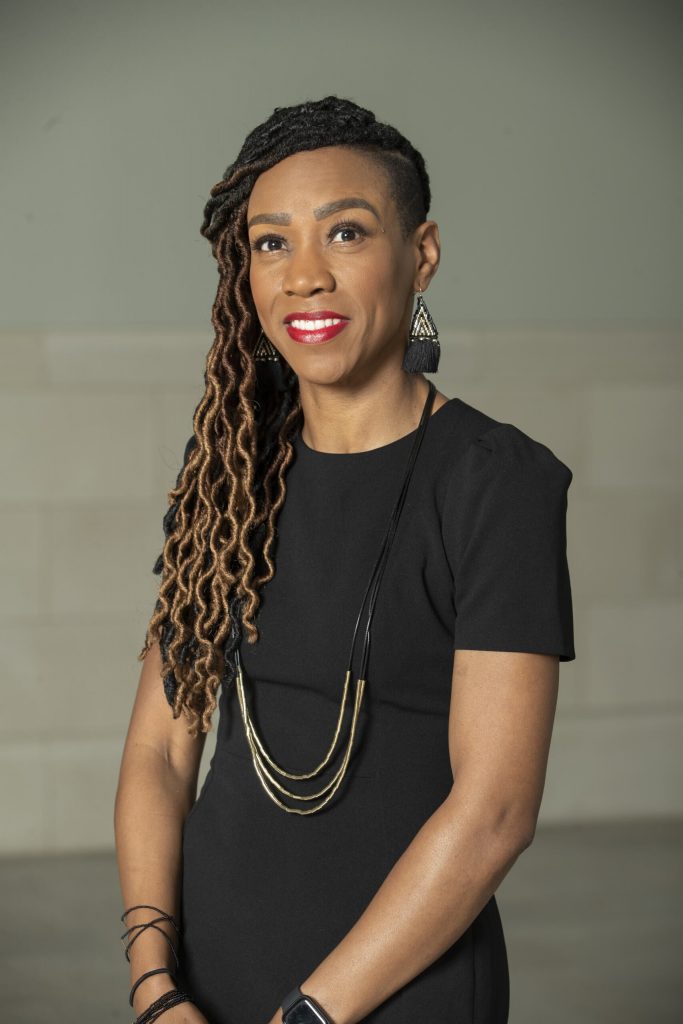
It took me a long time to find my voice after being “seen and not heard,” talked over, talked out of, talked about, mansplained and victim-blamed. It’s a wonder I have any part of my tongue left.
To be clear, I didn’t feel compelled to hold my tongue or bite it. Instead, I just fell silent, went quiet and into my head. Early on, I figured I was a better conversation partner and began journaling as an adolescent.
An introvert, that I speak at all is evidence of God’s calling. If you want me to run my mouth, then ask me about race and its progeny. I’ll talk about race until the streetlights come on, until the cows come home, until you have no faith in race and question aloud why you ever believed what it said about you or “them.”
Because who is this ever-present, overseeing, and ominous “they,” who watches my every word? No one speaks for me. No one word is my summary, especially not that four-letter word that curses me incessantly.
I also don’t like to be grouped. Human beings don’t come in packs or boxes or categories. There will never be a one-word description for me, no matter how you see me.
I am a full and finished statement. So, don’t put words in my mouth. I don’t like the way they taste and don’t even want to think about how they would sound nothing like me.
Consequently, don’t even attempt to speak for me. Because I don’t sound like that or speak so quickly.
My words are not reactionary or customary. Instead, I dabble in the imaginary, the visionary, the sight unseen, the stuff of dreams—rather than muddle around in this predictable reality. A student of history, I’ve heard it all before.
Besides, do you know how hard it is to speak up for yourself? Poet Ntozake Shange did.
She said,
“Somebody almost walked away wid alla my stuff
like a kleptomaniac workin hard & forgettin while stealin
this is mine/ this aint yr stuff/
now why don’t you put me back & let me hang out in my own self”
God bless the child that’s got their own self. This somebodiness is a given before capitalism puts a price on it, separating us into somebodies and nobodies.
It is full and vibrant just before race color-codes it and categorizes us as white and the other or white and people of color.
Robert Jensen is right about this false binary. He wrote in “The Heart of Whiteness,” “What makes the category ‘people of color’ make sense? The only commonality is that the people in that category are on the subordinated side of white supremacy.”
He continued, “Nothing intrinsically links people of indigenous, African, Latino and Asian descent in the United States except their common experience of being targeted, abused, victimized— albeit in different ways at different times— by a white supremacist society. Take that experience away and the category ‘people of color’ vanishes.”
Poof! The raceless gospel is a declaration of semantic sovereignty and a pink slip for white supremacist ideology. Because that doesn’t work here.
Not magic but immersed in the mysticism of baptism, I draw on its resurrection qualities. It is the transcendence of baptismal identity that I am after, that I hope to capture with this baptismal pedagogy.
Audre Lorde warned us: “If I didn’t define myself for myself, I would be crunched into other people’s fantasies for me and eaten alive.” Because racial identities are not self-referential; they do not originate with you or me.
Instead, they are capitalist-driven and manufactured social prejudices repeated over time to maintain the colonial arrangement of oppressor and oppressed. But I’m here to object, to protest, to insert my never-before-seen self.
Instead of a racialized caricature, I have cast myself as narrator. How else could l speak about my life in my own words?

